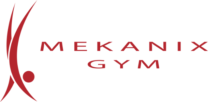Best Pre Workout and Post Workout Meals
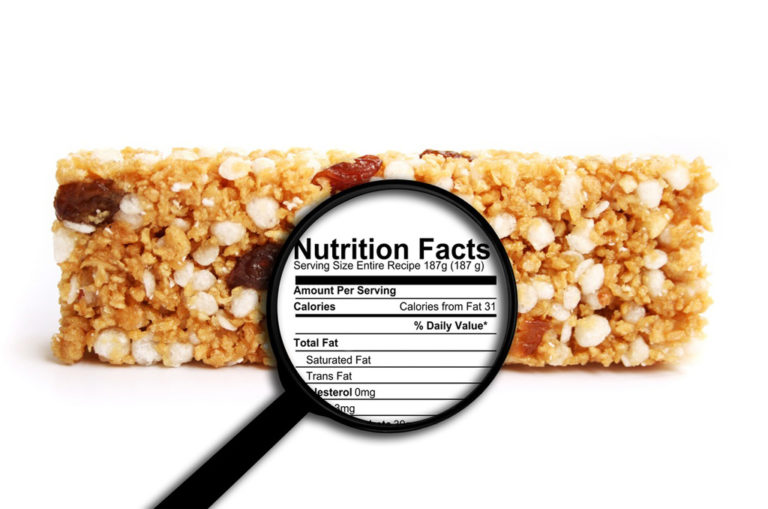
Imagine showing up for your next workout ready to absolutely tear it up. You’ve been watching a lot of Olympic performances and you’re feeling inspired.
We all are.
So you approach your first exercises with confidence and intention, but instead of nailing new personal bests, you feel lethargic, weak, and maybe even a little light-headed.
What happened?
There are a lot of factors that could contribute to such a feeling, but the first question we would probably ask you in that situation is this:
What did you eat before your workout?
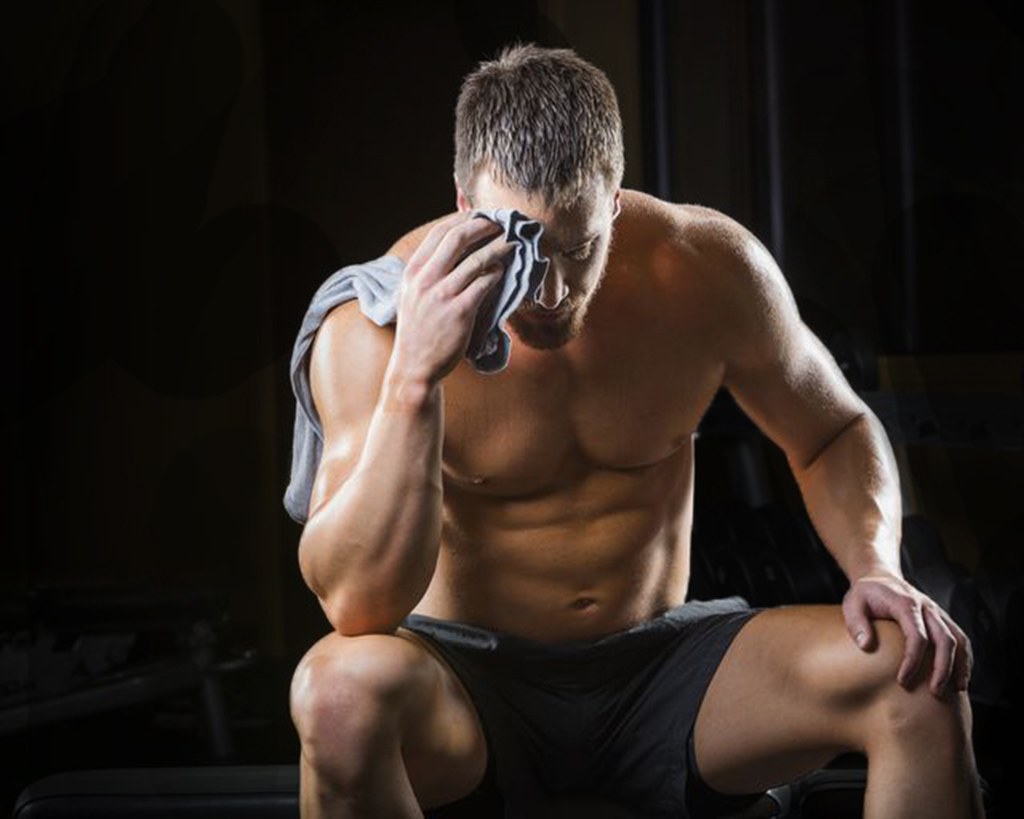
 Your diesel engine won’t run on gasoline (or fumes, for that matter), and you can’t expect your body to run on sub-par fuel.
Your diesel engine won’t run on gasoline (or fumes, for that matter), and you can’t expect your body to run on sub-par fuel.
What you eat matters for your overall health, of course, but it can also seriously impact your workouts. There’s a reason why Olympic athletes work closely with chefs and dietitians: they know the food they eat could make the difference between a gold-medal performance and not even qualifying for the finals.
You want to be going for gold every time you enter the gym.
We don’t all have a personal chef running around our kitchens, but you don’t need one! It’s still possible to make the right choices and eat great pre-workout meals to fuel your workouts.
I’m Not a Competitive Athlete, So Why Should I Care?
Two words: experience and results.
A properly-fueled body is full of energy. When you’re energized and ready to go thanks to your pre-workout meals, you have a more enjoyable workout experience.
Simple.
And when you enjoy the process, it’s easier to stick to your workout program.
If your personal gas tank is low, you’re not going to work as hard in the gym. Instead of squeezing out those last reps, you’ll stop the set early. If you’re weak and light-headed, you might even miss a few sets. (Which you should. Be mindful of the signals your body sends you during a workout.)
You work at a snail’s pace toward your fitness goals, all because you haven’t given your body what it needs to really kick it.
When you eat the right pre-and post-workout foods, you have a more enjoyable exercise experience and you work more quickly toward the results you want.
What to Include in Your Pre-Workout Meals
Everyone is a little different, so this requires a bit of experimentation. Some people feel sick if they exercise with too much food or the wrong food in their stomachs, while others prefer too much to too little.
However, there are some basic guidelines that will help you eliminate some of the trial and error, emphasis on the error. As the American Council on Exercise explains:
“When you exercise, blood flow is diverted away from your digestive system to your muscles. So right before working out you should avoid large meals and foods that your body has to work harder to digest, like fats, protein, and fiber.”
In general, aim to eat about one to four hours before your workout. The closer to your workout that you eat, the smaller and easier to digest the meal should be. Nutrition professor Nancy Cohen was interviewed for this CNN article; she recommends high-quality carbohydrates like bananas, yogurt, or a peanut butter sandwich as great pre-workout foods.
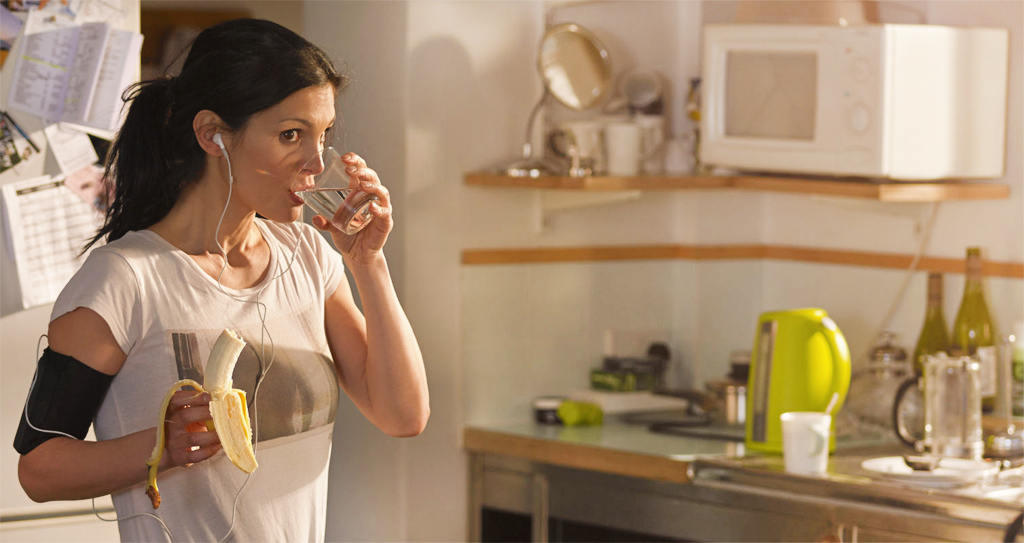

Check any packaged foods for added sugar. You don’t want your pre-workout meals working against your overall fitness goals.
In summary, pre-workout foods are:
- Low in Fat
- Low in Sugar
- Low in Fiber
- High in High-Quality Carbs
What to Include in Your Post-Workout Meals
Workouts break your body down. If you keep breaking down without taking time to rebuild, you don’t get any stronger. Rest periods and proper nutrition are what help your body come back stronger after every workout.
And how do we recover?
With protein.
And–surprise!–the right amount of carbs.
While pre-workout foods focus on carbohydrates for energy, your post-workout meals choices should include both carbs and protein. The National Academy of Sports Medicine (NASM) says that post-exercise nutrition is often overlooked, but it’s a key factor in your effective training program:
“Nutritional components of recovery include carbohydrates to replenish depleted fuel stores, protein to help repair damaged muscle and develop new muscle tissue, and fluids and electrolytes to rehydrate…. The recommendation for rapidly replenishing glycogen stores is to take in foods providing 1.0-1.5 g of carbohydrate per kg of body weight within 30 minutes of extended exercise…. Although daily protein requirements vary among individuals, consuming 15-25 g of protein within 1 hour after exercise can maximize the muscle rebuilding and repair process.”
Here are a few post-workout meals inspired by NASM:
- Grilled chicken, cottage cheese, and a sweet potato
- Baked or grilled lean meat with brown rice, cooked greens, and yogurt
- Whole-grain pasta with tomato sauce, fish, and veggies followed by yogurt and fruit for dessert
- A protein smoothie with 15-30 grams of protein with 100% fruit or veggie juice (fresh squeezed is best)
- A healthy protein bar
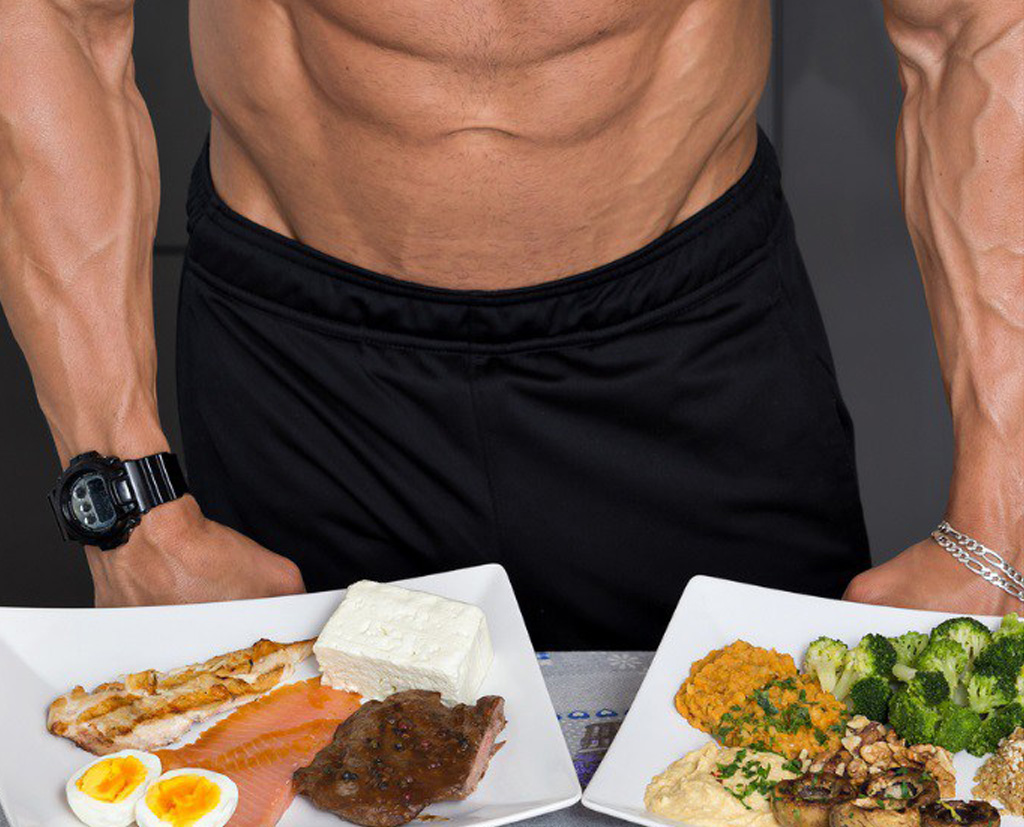

Speaking of protein bars….
What Foods Should I Avoid in My Pre- and Post-Workout Meals?
It’s not that protein bars are inherently bad. It’s just that some of them are.
So be careful.
Some of them are loaded with sugar and other crap ingredients. If you eat the Less-Than-Stellar Protein Bars before your workout, that sugar boost will spike and die before your workout is over. If you eat them when you’re done, you’re not refueling as well as you could be.
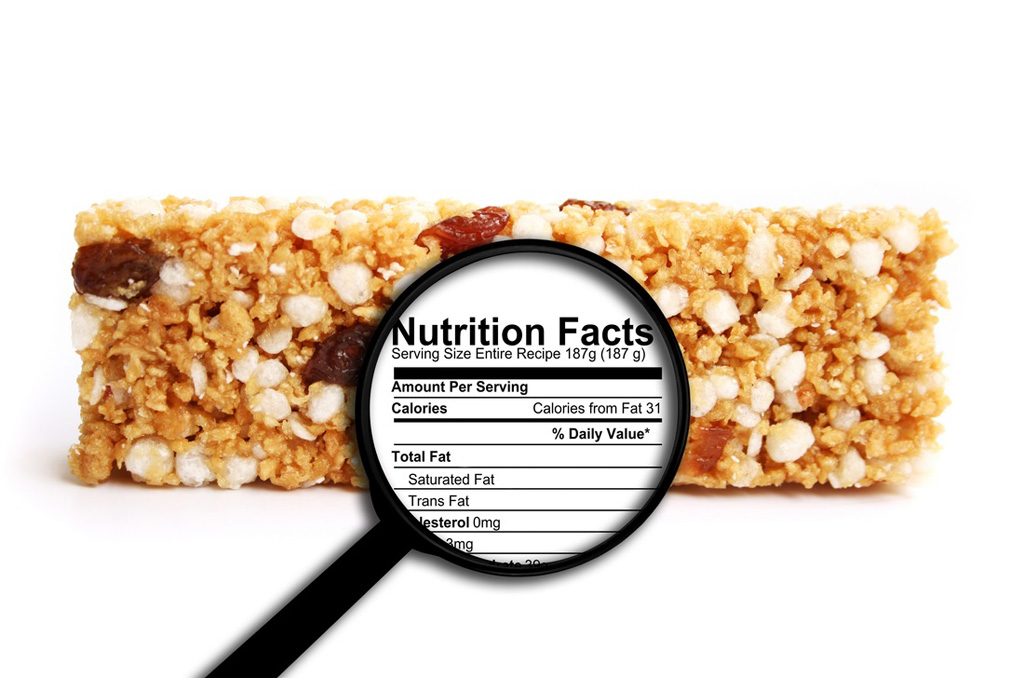

Protein bars great if you’re short on time or can’t make it home to bake that chicken breast before you go to work. But read the ingredients list before you buy them, and make sure they have the protein you need without the excessive added sugar.
While we’re talking protein bars, let’s take a look at their cousin, the sports drink.
Unfortunately, many of these are little more than sugar water.
Sugar water! Yuck.
Furthermore, if you’re exercising for an hour or less, you don’t need to fuel with anything but water during your workout. NASM, back us up on this:
“Supplemental nutrition may not be necessary during shorter or less-intense activity bouts. Athletes may need to eat during the activity if exertion lasts more than roughly 1 hour and/or environmental conditions require glycogen to be restored to maintain intensity and/or duration.”
For most of us, workouts last about an hour. Stick to your water to avoid the extra sugar and calories that live in sports drinks.
Otherwise, see above: avoid heavy, protein- and fiber-rich foods before your workout, and avoid sugar, well, most of the time. All the time if you’re hard-core and can stare down a brownie. More power to you.
But What If I Screw Up?
Whoa. Take a deep breath.
If you screw up, you’ll have one sub-par workout and you’ll know better for next time. It’s okay!
So maybe you had pizza for breakfast and that was 10 hours ago. Don’t let that be an excuse for skipping a workout.
Sure, your pizza-fumes workout will probably not be your best ever. But it still counts.
Approach that empty-stomach exercise knowing that you may need to adapt the workout. Adjust your intensity. Go a little easier on yourself, and take a rest when you need to.
You’ll get through it, and you might surprise yourself.
But if it goes well, should you intentionally exercise on an empty stomach? That’s what all the fat-burning kids are doing these days, after all.
Our nutrition professor Cohen says no. Men’s Fitness says no. NASM says no:
“Running on empty may help burn fat faster, but it won’t leave enough energy for more rigorous training. It also can increase the risk of strains, sprains, stress fractures and other injuries from exercise-related fatigue. Furthermore, letting the body get too depleted may cause people to overeat afterward, undoing the benefits of exercising in the first place. Therefore, adequate fueling before exercise is the better route to improving performance.”
It’s a worthy experiment to try and see how your body responds, but the best current data says “no” on the fasted workouts. If you want to maximize your performance and results, your body needs fuel to do it.
If you find yourself in a pre-workout bind, where you know you haven’t eaten in hours but your workout is set to start in 30 minutes, quick snacks like a banana, a granola bar, or a piece of toast might do the trick. They’ll give you a little energy to help you through the workout without weighing you down.
Sign Up For Weekly Freebies
Interested in more tips, ideas, and inspiration? Every week we share helpful nuggets about nutrition, calisthenics, and building healthy habits that translates to results in and out of the gym. Sign up today and start the journey of getting 1% Better Every Day.
